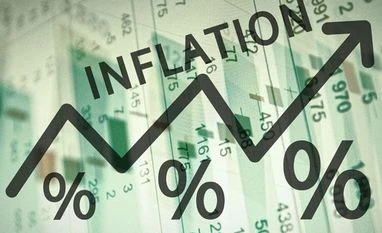Higher input prices and disruptions to the rural economy have resulted in price pressures and inflation is back to haunt us, a rating agency said in its research report on Wednesday.
The report by Crisil said it sees upside risks to its 5 per cent estimate on consumer price inflation in FY21 because of this.
It can be noted that the Reserve Bank is required to maintain the crucial number at 4 per cent in the medium term, with a 2 percentage point leeway on either side as part of its inflation target. A surge in inflation worries had led it to desist from introducing rate cuts during much of FY21, despite the over 7.6 per cent contraction in the economy.
In its note, Crisil said data collection was disrupted in April and May 2020 because of the national lockdown, and last year's base will not reflect accurate trends. Therefore, it has focused on sequential price trends on a seasonally adjusted basis.
When viewed thus, both WPI (wholesale price index) and CPI indices continued to increase on-month in April 2021, it said.
Input costs are rising because of a surge in global commodities, which are raising manufacturing costs and hence fanning domestic inflation, the report added.
Also Read
It said crude oil price at USD 65 a barrel is double that of seen last year and back to 2019 levels, edible oils are up 57 per cent on-year, the metals index is up by 76 per cent, and transportation costs are also high with the surge in the Baltic index.
WPI inflation has surged in double digits in April on-year for items directly linked to these commodities, it said, adding crude-linked inflation has risen the sharpest, partly led by the base effect too.
Producers are currently bearing a higher burden of rising input costs than consumers. However, as demand revives, these costs can get increasingly passed on to consumers, the report noted.
On top of the commodity prices, supply disruptions brought on by the intensification of the second COVID-19 wave in rural India are resulting in inflationary pressures, it said, adding that upside inflation risks are clearly growing.
These risks include the rising input prices, upside pressure on food prices and rising rural core inflation, it pointed out.
(Only the headline and picture of this report may have been reworked by the Business Standard staff; the rest of the content is auto-generated from a syndicated feed.)
)